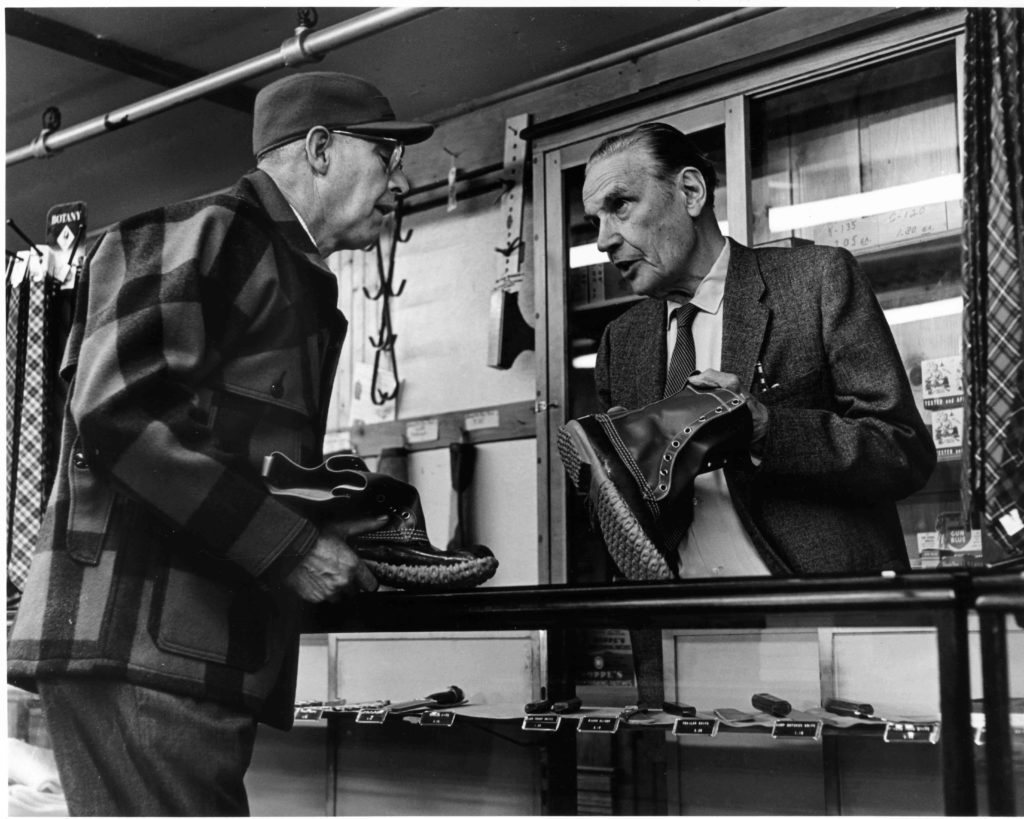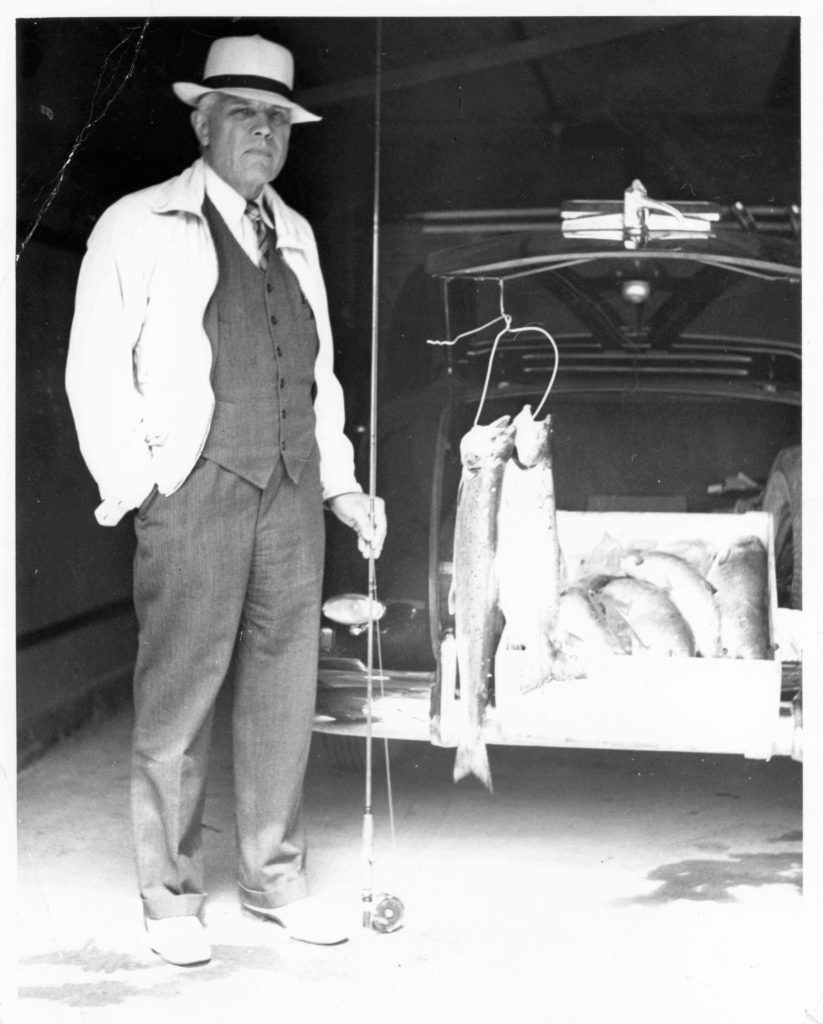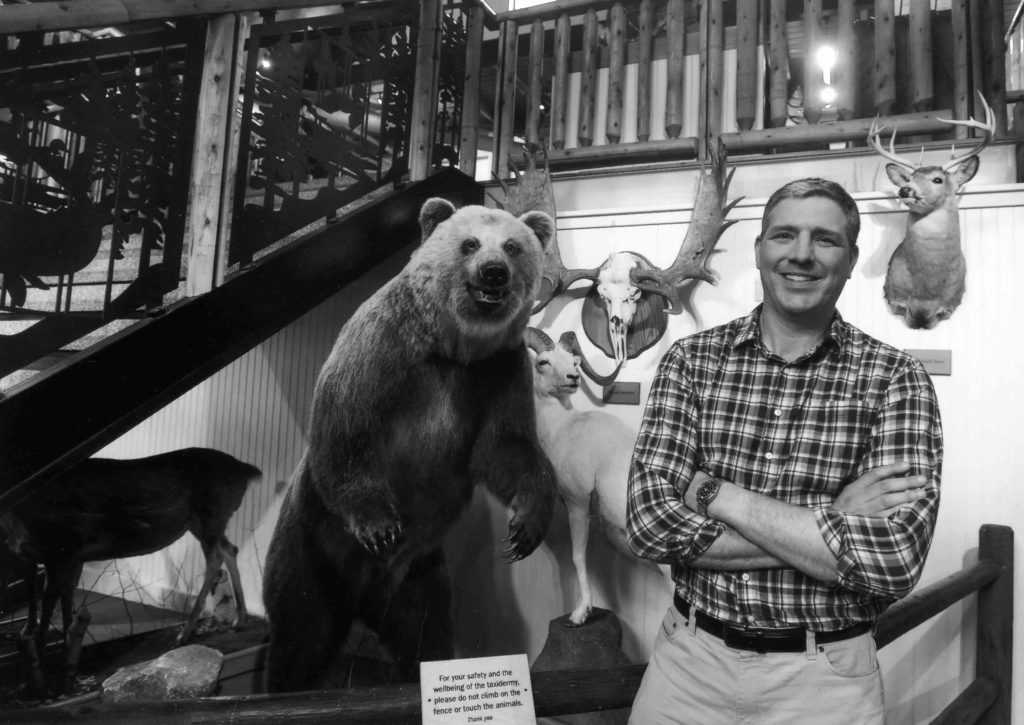An Enduring Icon
L.L.Bean chairman Shawn Gorman on navigating crises while preserving the company's values
In 1951, Leon Leonwood Bean dismantled all the locks at his flagship store in Freeport. In the decades after, the store would stay open 24 hours a day, year-round, closing to the public only four times, for no more than a few hours. Then, on March 16 of this year, Shawn Gorman, L.L.’s great-grandson and the current executive chairman of L.L.Bean, closed the store’s doors indefinitely. Maine, with the rest of the country, was initiating stay-at-home policies to protect its citizens from the novel coronavirus COVID-19. Gorman, who took over as chairman from his uncle, Leon, in 2013 and has been with the company for 29 years, describes the closing as emotional: “We were still trying to figure out the severity of the situation at that time, working to get the best information that we could. We had this guiding principle that we started operating with, and that was what might seem alarmist today might not seem like enough tomorrow. I’ve been in to the store a couple of times since, to walk through. It’s eerie.” At the time of printing this article, the company planned to reopen the store, one of Maine’s top tourist attractions, on June 1, with the blessing of the state.

Leon Gorman hiking near the Wild River on the Maine–New Hampshire border in 1985. 
L.L. holding a 19-pound salmon in 1945.
While the stark contrast between the shutdown and the store’s legendary always-open policy is jarring, L.L.Bean is hardly undergoing adversity for the first time. Since its founding in 1912, the company has borne witness to the Spanish Flu; two world wars, as well as the Vietnam and Korean wars; the Great Depression; and multiple recessions and stock market crashes, among many other national and global crises. “I often think of our community and the roles we’ve played during those times. L.L. was incredibly active in the community, devoted to helping folks. L.L.Bean has a history of helping others,” says Gorman. “Our main value is perseverance. It’s not necessarily all about guts and strength. It’s about managing carefully and taking the long view. It’s about understanding it’s a marathon versus a sprint. It’s about surviving to fight another day and getting on the other side of things.”
The company’s resilience started with its founder. Leon Leonwood Bean was born in 1872, one of six children. He lost both of his parents by the age of 12 and went to live in what was considered a foster home, which involved more required labor than nurturing. L.L. ending up spending much of his youth trapping, then selling his catch. He managed to work his way through Kents Hill School and received a high school diploma, a not-insignificant accomplishment for an orphan in the 1880s. In choosing a profession, L.L. followed a few of his brothers and cousins into the clothing and footwear business.
As the lore goes, L.L., an avid outdoorsman, was so fed up with his cold, damp feet after days of hunting that he decided to attach rubber bottoms to leather-top boots. He created a prototype and sent out 100 pairs to fellow hunters at $3.50 apiece. Around 90 pairs were returned: the rubber wasn’t strong enough to hold the stitching. L.L. refunded their money, the initial inception of Bean’s guarantee, and worked with a company in Boston to perfect his product with better rubber and triple stitching. The enduring Bean boot remains an icon, not only of the brand but also of the state of Maine. “When we think of the things that make our brand unique, they are the same things that make Maine unique and a special place to live: the strength of the work ethic, a culture of service, Yankee ingenuity and practicality, and a preference for items with function over form,” says Gorman.

Founder Leon Leonwood Bean holding his iconic creation, the Maine Hunting Shoe.

L.L. was an avid fisherman. 
Leon Gorman, L.L.’s grandson, took over as L.L.Bean’s president in 1967.
When a Bean employee reached out to management on a Tuesday in March to express concerns over a lack of personal protective equipment (PPE) for hospital employees, the company immediately pivoted its manufacturing to make PPE for frontline workers battling the COVID-19 crisis. By Friday of that week the company was making masks daily, up to around 13,000 per day by early May. Additionally, after local wallet and gear manufacturer Flowfold reached out in mid-April to help make face shields, another line of manufacturing employees began assembling those and are now producing 3,500 plastic face shields daily as well. “Working with MaineHealth to understand the statewide needs and with [biomedical research institute] Jackson Laboratory to test the prototypes, we had the ability to provide nonsurgical face masks to so many people in hospital environments,” Gorman says. “It was symbolic of what I think about when I think of Maine: it’s local, it’s smaller-scale, it’s neighbors helping neighbors, and it’s excellent.”
In a state known for its woods, waters, and coastline, the primary unifier of the Bean community is its love of the outdoors. From L.L. to Leon to the family stewards of today, the company has been shepherded by outdoor enthusiasts whose guiding principle is inspiring and enabling people to get outside. Yet, despite living in a state that includes Casco Bay, Baxter State Park, and Rangeley Lakes, Gorman is keen to remind people that one’s own backyard can be journey enough—especially right now. “We’re all in this hyper-stress, hyper-anxious time—we have been for years, frankly—and right now, of course, it’s heightened. But L.L. and Leon knew that there was power in spending time outdoors. L.L. often spoke of its health and wellness benefits, and Leon of the spiritual and phys-ical rewards that come from spending time outdoors,” Gorman says. “But it doesn’t mean you have to go to the Grand Canyon or to Acadia National Park. It doesn’t take a grand adventure to benefit from the restorative power of the outdoors.”

Shawn Gorman, the great-grandson of L.L., is executive chairman of the board at L.L.Bean.

